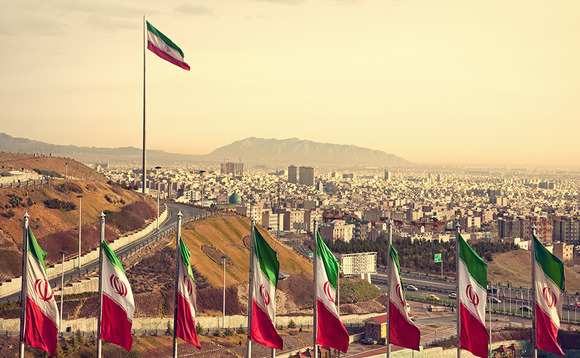
Comment: The impact of lifting Iranian sanctions on private equity

Debevoise & Plimpton's Sally Gibson and Konstantin Bureiko assess how widely the door has been opened to the second largest economy in the Middle East following a shift in international sanctions, and how this development will affect private equity
With Iran meeting its initial commitments under the Joint Comprehensive Plan of Action on 16 January, the doors to the second largest economy in the Middle East and one of the top 20 countries by GDP have been reopened to much of the western world.
But this development is not without its small print and the caveats are worth understanding, because they add up to giving European GPs with a non-US investor base a definitive advantage over their US counterparts when looking at new opportunities in Iran.
EU funds win out
Opportunities in Iran's oil and gas industry have been making headlines, but the sanctions relief introduced by the EU goes well beyond just oil and gas. Notable changes include an end to fund transfer restrictions and enabling EU banks to set up branches within Iran. Asset freezes affecting many Iranian banks and financial institutions have also been lifted. More broadly, EU companies can now participate in Iran's maritime industry and trade various precious commodities with Iran.
All of these relaxations provide opportunities for purely European GPs looking to invest on behalf of European funds – with the caveat that these opportunities will not be available where the fund has any US entities in its group. It should be noted that investment into a European fund pursuing investment opportunities in Iran will not be palatable to US investors.
There remains the hurdle of creating an investment strategy in Iran, though. Very few, if any, European funds currently have investment mandates broad enough to take advantage of these opportunities. There is little experience within private equity of investing in Iran, and with sanctions stretching back to 1979, the sector has had little exposure to the country. None of which is to say European GPs don't have the potential expertise.
US persons continue to be subject to primary sanctions, which prevent them from engaging in almost all trade with Iran without authorisation"
Many in the industry have close knowledge and understanding of Iran. But the challenges of refocusing or expanding the strategy of existing funds, or gaining buy-in from existing investors – or being in a position where such refocus or expansion is even permissible from the perspective of the current investor base – are considerable. It's unsurprising, then, that the most persistent market rumours centre on enterprising European GPs starting from scratch to raise brand-new Iran-focused funds.
It is important, however, not to overstate the extent of the EU sanction relaxations. They extend only to the broad economic restrictions, and do not remove human-rights related restrictions, the arms embargo or the nuclear industry-related restrictions. The EU also continues to maintain asset freezes against hundreds of Iranian persons and entities. For example, The Revolutionary Guards and the many companies owned by it are still subject to sanctions.
The US sanction relaxations have been notably more restrained. US persons continue to be subject to primary sanctions, which prevent them from engaging in almost all trade with Iran without authorisation and these restrictions extend to US LPs investing in funds that invest in Iran. Thus, US funds cannot yet make investments and US investors cannot indirectly make investments through non-US funds into Iran, with very limited exceptions.
One of the changes means foreign subsidiaries of US companies are now able to trade with Iran. Previously, primary sanctions applied to any entities owned or controlled by US persons. Now, an EU-based subsidiary of a US fund may be able to deal with Iran almost on par with its purely EU-based competitors, but care will still need to be taken given that US persons remain subject to primary sanctions, and this relaxation is itself subject to some important restrictions.
Remain cautious
All of the relaxations remain subject to a "snap back" mechanism. This allows the US, EU and UN to reintroduce sanctions against Iran in the event of it failing to comply with its obligations. While contracts entered into during the period in which sanction relaxations applied are likely to be "grandfathered" if a snap back is used, there is no guarantee to how long such grandfathering will last. Any fund looking to invest in Iran will therefore need to take this risk into account and prepare appropriate exit strategies.
A further political risk lies in the upcoming US elections. A number of the Republican candidates have expressed their desire to revisit the sanction relaxations, creating an additional layer of uncertainty.
The situation in Iran has changed dramatically and headlines have rightly been written. The country now presents a tantalising opportunity for brave EU funds. But taking advantage of that opportunity likely means setting up new funds with new strategies and new investors, and there remains considerable risk. The door is by no means entirely open.
Latest News
Stonehage Fleming raises USD 130m for largest fund to date, eyes 2024 programme
Sponsor acquired the public software group in July 2017 via the same-year vintage Partners Group Global Value 2017
Stonehage Fleming raises USD 130m for largest fund to date, eyes 2024 programme
Czech Republic-headquartered family office is targeting DACH and CEE region deals
Stonehage Fleming raises USD 130m for largest fund to date, eyes 2024 programme
Ex-Rocket Internet leader Bettina Curtze joins Swiss VC firm as partner and CFO
Stonehage Fleming raises USD 130m for largest fund to date, eyes 2024 programme
Estonia-registered VC could bolster LP base with fresh capital from funds-of-funds or pension funds








